
Scholarly Publishing Webinar Series
-
Register
- User - Free!
This monthly webinar series is hosted by the editorial teams of the AAMC’s 2 peer-reviewed journals, Academic Medicine and MedEdPORTAL. Sessions will cover the importance of publishing your education scholarship and practical suggestions for how to do so successfully, including how to improve your writing and navigate the peer-review and publication processes. Sessions will include interactive exercises to practice what you have learned and time for Q&A with the editorial teams of Academic Medicine and/or MedEdPORTAL. While this series features the editorial teams of the AAMC’s journals, the topics and recommendations presented will also apply to other types of medical education scholarship and to submissions to other journals and publications. Be sure to check back as additional sessions will continue to be added to this series.
-
Contains 2 Component(s) Recorded On: 09/10/2024
In this webinar, speakers with experience as researchers and publishers will address the opportunities and challenges that AI affords to scholars and the scholarly publishing process.
AI is changing scholarly publishing. In this webinar, speakers with experience as researchers and publishers will address the opportunities and challenges that AI affords to scholars and the scholarly publishing process. They’ll explore when and how scholars can use AI tools in writing up and publishing their research and scholarship, including considerations and practical suggestions for how to do so responsibly.

Chhavi Chauhan, PhD, ELS
Director of Scientific Outreach
American Society for Investigative Pathology
Dr. Chhavi Chauhan is Director of Scientific Outreach at the American Society for Investigative Pathology, a Program Manager for the Women in AI Accelerate & Raise Program, and serves on the boards for various mission-driven organizations in the spheres of scholarly publishing, digital pathology, AI ethics, & youth education. She is a former biomedical researcher, expert scholarly communicator, and a sought-after mentor in the fields of scientific research, scholarly publishing, and AI ethics, especially for women and those from underrepresented groups. She has gathered several awards and accolades in each of these domains. She is a thought leader, a renowned international speaker, and a strong advocate for equitable and accessible health care.
Tom Ciavarella
Head of Public Affairs and Advocacy, North America
Frontiers Media
Tom Ciavarella is the head of Public Affairs and Advocacy in North America for Frontiers, a Gold Open Access publisher working to make science open so that researchers can collaborate better and innovate faster. Tom oversees government relations in the United States and Canada and works with key stakeholders on improving science and technology policy. He is formerly manager of Publisher Relations for the Web of Science Group (part of Clarivate) and runs a consultancy that works with startups and STM publishers. He lives in Chicago.
-
Contains 2 Component(s) Recorded On: 06/24/2024
Learn key strategies for finding the right home for your scholarship and maximizing your publication success while exploring how the recently updated AAMC Group on Educational Affairs (GEA) Medical Education Scholarship Research and Evaluation (MESRE) Annotated Bibliography can serve as an essential, trusted resource in your journey to make an impact in the field of academic medicine.
Learn key strategies for finding the right home for your scholarship and maximizing your publication success while exploring how the recently updated AAMC Group on Educational Affairs (GEA) Medical Education Scholarship Research and Evaluation (MESRE) Annotated Bibliography can serve as an essential, trusted resource in your journey to make an impact in the field of academic medicine.
Andrea Berry, MPA, PhDc
Executive Director, Continuous Professional Learning
University of Central Florida College of MedicinePamela Herring, MLIS, D-AHIP
Electronic Resources Librarian, Harriet F. Ginsburg Health Sciences Library
University of Central Florida College of MedicineJudy M. Spak, MLS
Head of Academic Research and Education, Cushing/Whitney Medical Library
Yale School of Medicine -
Contains 2 Component(s) Recorded On: 04/18/2024
Speakers who hold roles as editors and reviewers will present an overview of the peer-review process, provide practical advice on how to conduct a meaningful peer review, and give insights into writing reviewer comments that will be both useful to editors and actionable for authors.
Speakers who hold roles as editors and reviewers will present an overview of the peer-review process, provide practical advice on how to conduct a meaningful peer review, and give insights into writing reviewer comments that will be both useful to editors and actionable for authors. The advice shared will be applicable to journal submissions as well as conference abstracts.
Anthony R. Artino Jr., PhD
Associate Dean for Educational Research
George Washington University School of Medicine and Health SciencesMichael Cameron
Staff Editor, Academic Medicine and MedEdPORTAL
Association of American Medical CollegesHeeyoung Han, PhD
Associate Professor, Department of Medical Education
Director of Faculty Affairs and Director of the Medical Education Research Fellowship Program
Southern Illinois University School of MedicineLaura Weingartner, PhD
Assistant Professor, Undergraduate Medical Education
Research Director, Health Professions Education
University of Louisville School of Medicine -
Contains 2 Component(s) Recorded On: 02/07/2024
Games. Podcasts. Tweetorials. It is time for our field to acknowledge these and other nontraditional forms of scholarship.
Games. Podcasts. Tweetorials. It is time for our field to acknowledge these and other nontraditional forms of scholarship. For generations, scholarly productivity in academic medicine meant publishing articles in peer-reviewed journals. Today, traditional publishing is still an important piece of an academic medicine career, but myriad features from open science to social media and from microcredentials to graphic medicine are disrupting the definition of what constitutes educational scholarship. Speakers will draw from personal experience to discuss the innovative modes of scholarship development and dissemination that have furthered their work and careers, and the facilitator will provide context around the evolution of how nontraditional scholarship is “counted” toward career advancement in the field.
Learning Objectives:
- List different types of nontraditional scholarship used in academic medicine today.
- Describe how diverse and inclusive forms of nontraditional scholarship can contribute to your career advancement.
- Identify at least one type of nontraditional scholarship to expand your own work and career.
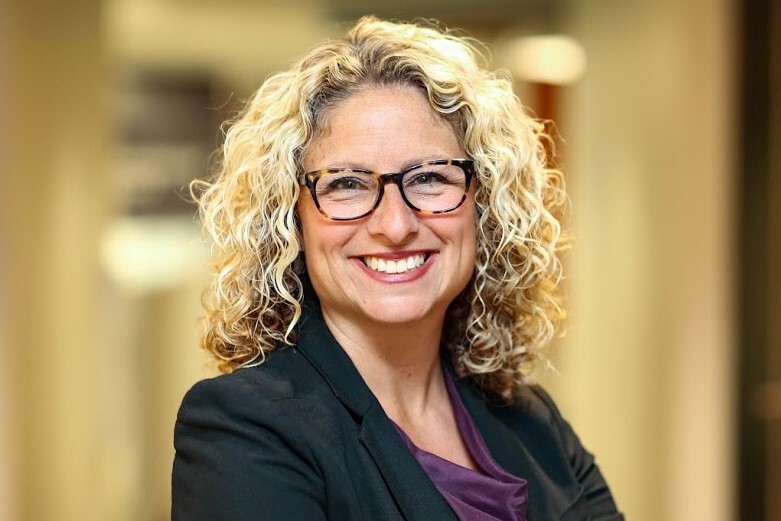
Mara L. Becker, MD, MSCE
Vice Dean for Faculty and Professor of Pediatrics
Duke University School of Medicine
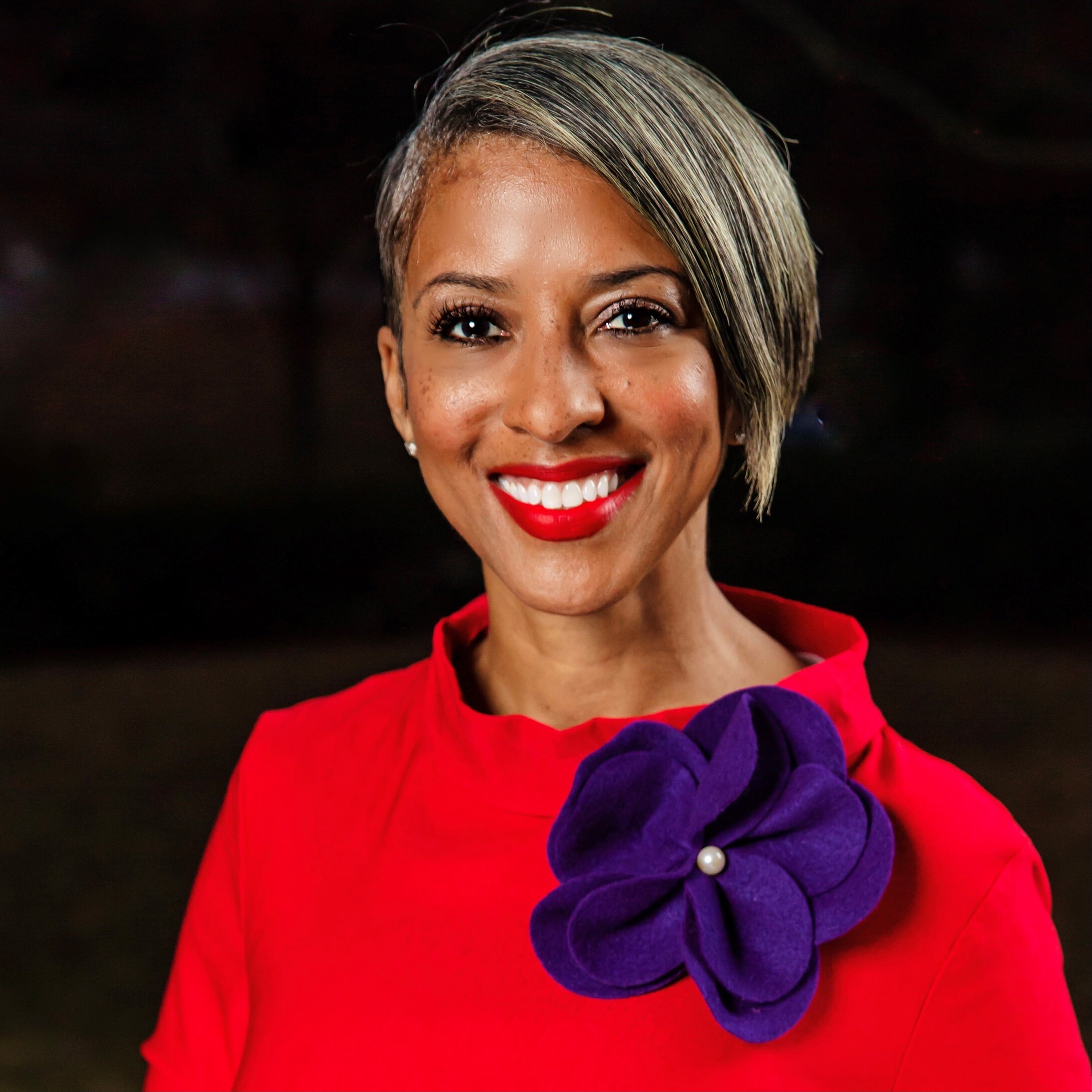
Kimberly Manning, MD
Professor of Medicine and Associate Vice Chair of Diversity, Equity, and Inclusion
Emory University School of Medicine
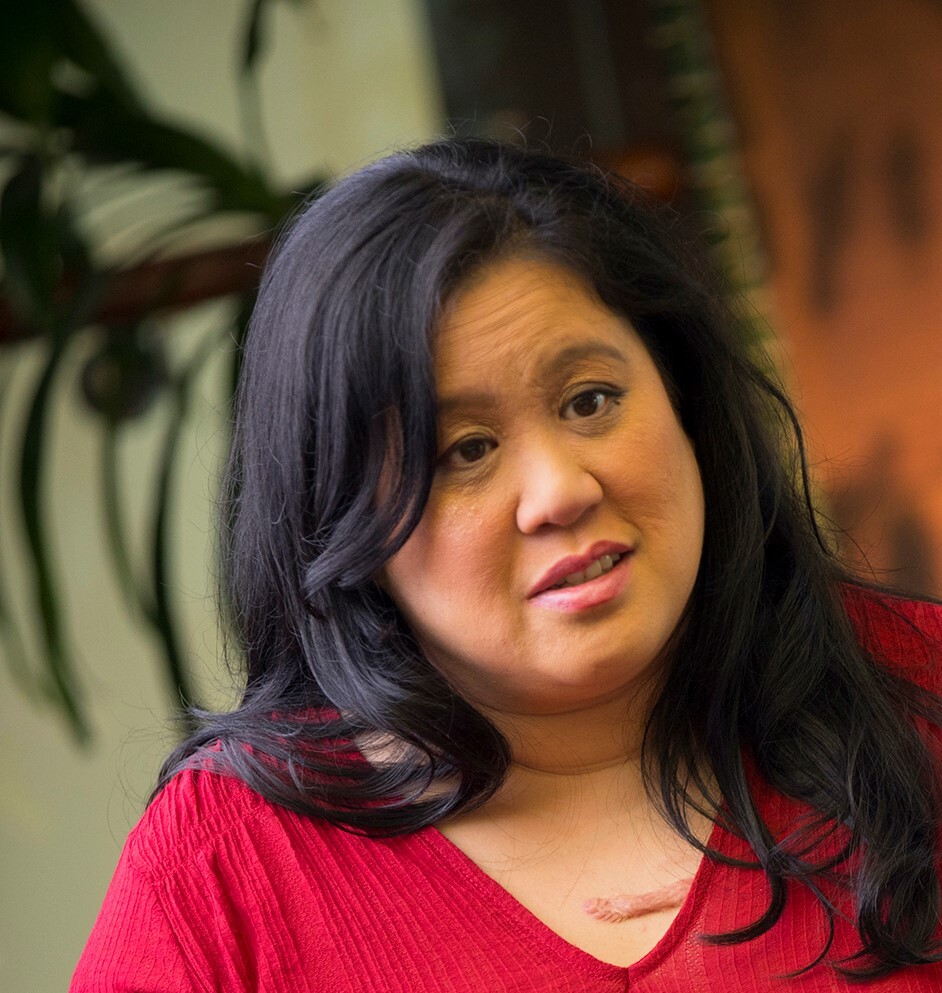
Teresa M. Chan, MD, MHPE, MBA
Founding Dean (School of Medicine) and Inaugural Vice-President, Medical Affairs
Toronto Metropolitan University
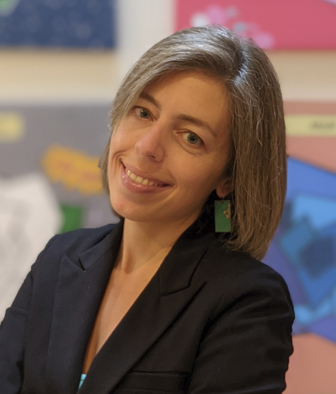
Pilar Ortega, MD, MGM
Vice President, Diversity, Equity, and Inclusion, Accreditation Council for Graduate Medical Education
Clinical Associate Professor, University of Illinois College of Medicine
-
Contains 2 Component(s) Recorded On: 12/15/2023
This session will explore ChatGPT’s impact on scholarship by discussing its historical significance, predictive power, and transformative potential.
This session will explore ChatGPT’s impact on scholarship by discussing its historical significance, predictive power, and transformative potential. Attendees will learn how ChatGPT has reshaped scholarly pursuits, can aid researchers and learners, and may address future challenges.
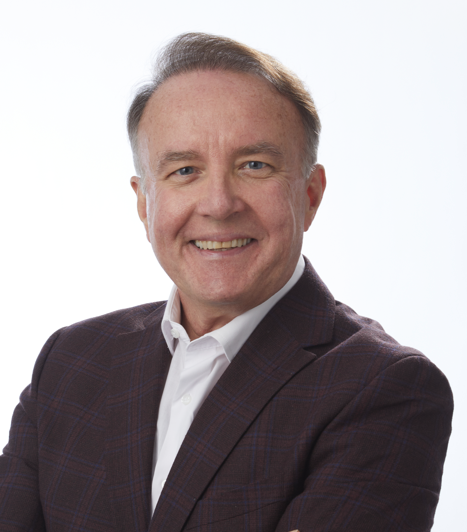
Christopher Kenneally
Senior Director, Content Marketing
Copyright Clearance Center
At Copyright Clearance Center (CCC), Christopher Kenneally develops programs covering issues facing scholarly publishing and the research community. Kenneally is host of CCC’s weekly podcast series, Velocity of Content, and produces CCC’s Town Hall series on LinkedIn Live.
As a freelance journalist, Kenneally has reported for The New York Times and The Boston Globe, among many other publications, as well as for WBUR-FM (Boston), National Public Radio, and WGBH-TV (PBS-Boston). He is the author of “Massachusetts 101” (Applewood Books), a history of the state “from Redcoats to Red Sox.”
-
Contains 2 Component(s) Recorded On: 09/29/2023
You’ve invested months into completing your study, writing up the results, and submitting your manuscript to a journal. Now you’ve received feedback from the journal’s reviewers and editors asking you to revise. What do you need to do to increase the chances that your manuscript will get published?
You’ve invested months into completing your study, writing up the results, and submitting your manuscript to a journal. Now you’ve received feedback from the journal’s reviewers and editors asking you to revise. What do you need to do to increase the chances that your manuscript will get published?
In this session, you will hear from speakers experienced in writing and revising manuscripts and in reviewing and making decisions about what gets published (and what doesn’t). Speakers will share insights and provide guidance on best practices for receiving and responding to feedback from peer reviewers and editors. Participants will learn strategies for effectively revising so their manuscripts are improved and more likely to be accepted by editors. There will be time for Q&A.
Constance Tucker, MA, PhD
Vice provost, Educational Improvement and Innovation, Oregon Health & Science University, and associate editor, MedEdPORTALKrisztina Fischer, MD, PhD, MMSc
Assistant professor of radiology, Harvard Medical School, and editorial board member, Academic Medicine -
Contains 2 Component(s) Recorded On: 08/18/2023
Alleviate your anxiety and learn how to build strong partnerships with medical librarians to enhance your education scholarship.
Alleviate your anxiety and learn how to build strong partnerships with medical librarians to enhance your education scholarship. Librarians bring a deep understanding of using conceptual frameworks, refining research questions, and performing targeted literature searches. They have expertise in a variety of research methodologies and the process needed to bring a research publication to fruition. In this session, speakers will discuss practical strategies for successfully partnering with medical librarians to amplify the impact of education scholarship. They will offer insights into the benefits and risks of using AI in research and explore how medical librarians can guide educators in navigating this evolving landscape.
Please use Google Chrome, Firefox, Edge or Safari on this site.
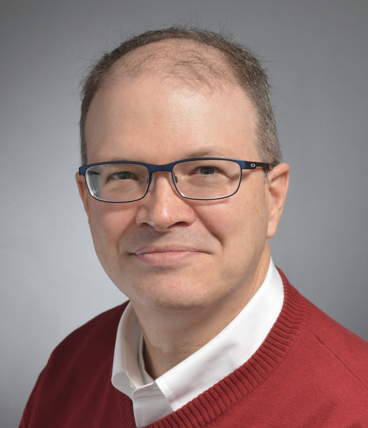
Gary S. Atwood, MSLIS, MA
Systematic Review Librarian & Library Associate Professor
Dana Health Sciences Library
Gary S. Atwood is a Library Associate Professor at the University of Vermont’s Dana Health Sciences Library. His primary responsibility is to serve as team leader for the library’s new systematic review service. He also participates, as either a collaborator or co-author, on reviews in the Larner College of Medicine, the College of Nursing and Allied Health, and the University of Vermont Medical Center. In addition, he serves on the library’s research support team with a special focus on topics such as personal knowledge management, research impact, and artificial intelligence tools. His research interests include information seeking behavior of students, faculty, and researchers as well as the use of technology in the research process. He lives in Burlington, Vermont.
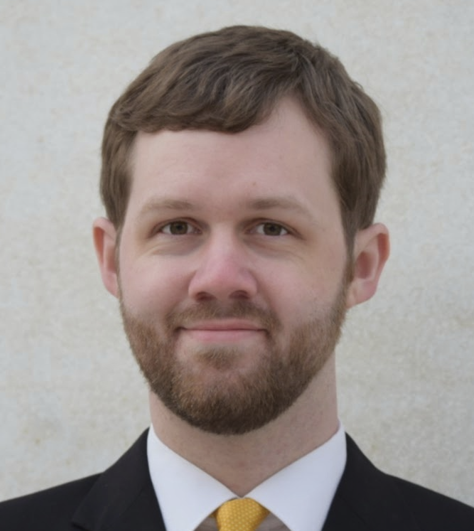
Lee Crowther
Library Specialist
Association of American Medical Colleges
Lee Crowther entered the library field as an undergraduate after a faculty member referred him to a job at the university library’s social sciences help desk. After graduating with a degree in philosophy, he joined the AAMC as a library specialist. He enjoys partnering with colleagues across the organization and in academic medicine more broadly at all stages of projects to improve processes and achieve goals.
-
Contains 2 Component(s) Recorded On: 07/13/2023
This webinar will provide information and guidance on the use of language that is inclusive and accurate in its depiction of identity, lived experiences, health and well-being, and health outcomes.
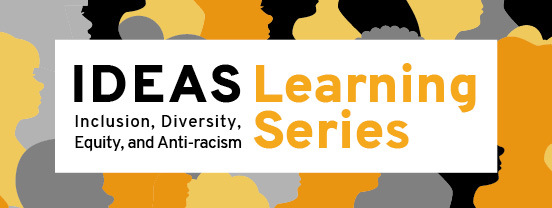
This webinar will provide information and guidance on the use of language that is inclusive and accurate in its depiction of identity, lived experiences, health and well-being, and health outcomes. Panelists will discuss the principles of using inclusive language across their roles as scholars, authors, reviewers, and editors and offer practical strategies for writing that aligns with inclusive language best practices and welcomes the diversity of all people and their identities. Note: This webinar is open to all who are interested in attending but will address inclusive language in the context of its use in the United States.
This webinar is a collaboration between the Scholarly Publishing Webinar Series and the IDEAS Learning Series.
About the Scholarly Publishing Webinar Series
This series is hosted by the editorial teams of Academic Medicine and MedEdPORTAL. Sessions cover the importance of publishing education scholarship and practical suggestions for how to do so successfully.About the IDEAS Learning Series
The AAMC IDEAS (Inclusion, Diversity, Equity, Anti-racism) Learning Series provides actionable information about DEI strategies that you can put into practice to become a more effective and successful leader, educator, and member of the academic medicine community.Learning Objectives
After participating in this session, attendees should be able to:- Explain the impact that language has and the importance of using inclusive language in scholarly writing.
- Adopt best practices for writing that strives to be inclusive.
- Identify practical strategies for engaging with colleagues to promote the key role that inclusive language plays in good scholarly writing.
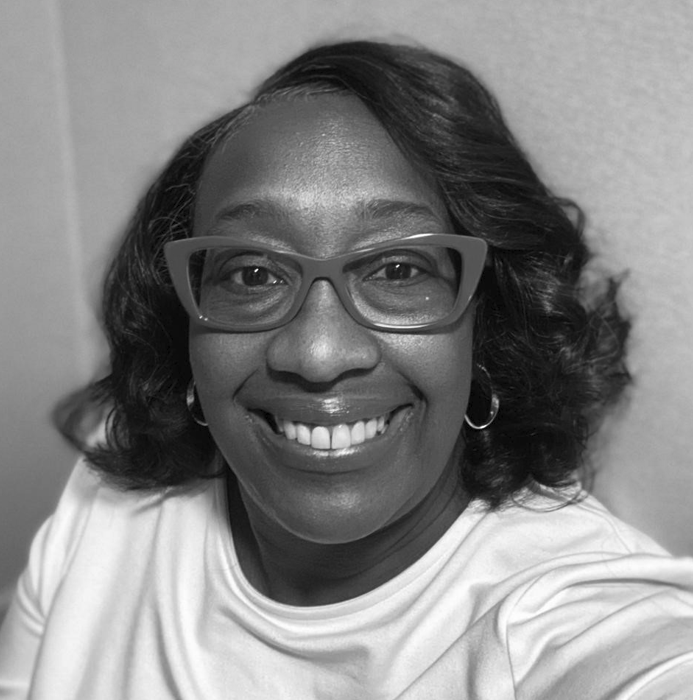
Monica Lypson, MD, MHPE
Monica Lypson is Vice Dean for Education, Columbia University Vagelos College of Physicians and Surgeons and the Rolf H. Scholdager Professor of Medicine, Columbia University Irving Medical Center. Her work focuses on innovations and improvements in health professions education and assessment, health equity, workforce diversity, faculty development, medical care delivery, and clinician communication skills. Dr. Lypson has held many national roles focused on health professions education, including currently as associate editor at Academic Medicine. She has written on the topic of physician marriages, especially in academic medicine. She continues to strive for a sense of well-being and life-work integration.
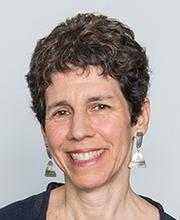
Jennifer Potter, MD
Jennifer Potter is a professor of medicine and advisory dean at Harvard Medical School, co-chair of The Fenway Institute, and associate editor at MedEdPORTAL. Her scholarly work focuses on advancing health equity for sexual and gender minorities and trauma-informed medical education.
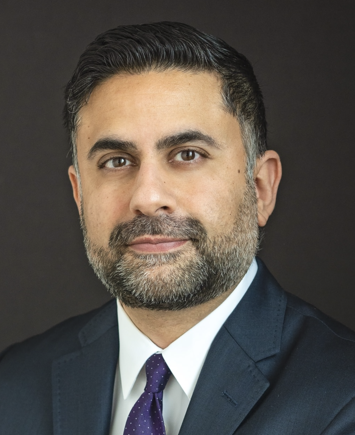
Javeed Sukhera, MD, PhD, FRCPC
Javeed Sukhera is the Chair of Psychiatry at the Institute of Living and Chief of Psychiatry at Hartford Hospital in Hartford, Connecticut. He is also an Associate Clinical Professor of Psychiatry at the Yale School of Medicine. In his role as Chair/Chief, Dr. Sukhera is responsible for advancing the IOL's clinical, research, and educational missions including training programs in psychiatry, psychology, social work, and nursing, as well as several endowed research centers. He is an internationally recognized health professions education researcher and thought leader. His research program explores novel approaches to addressing stigma and bias among health professionals, and he has been involved in advocacy and cross-sectoral work in education, policing, and community services.
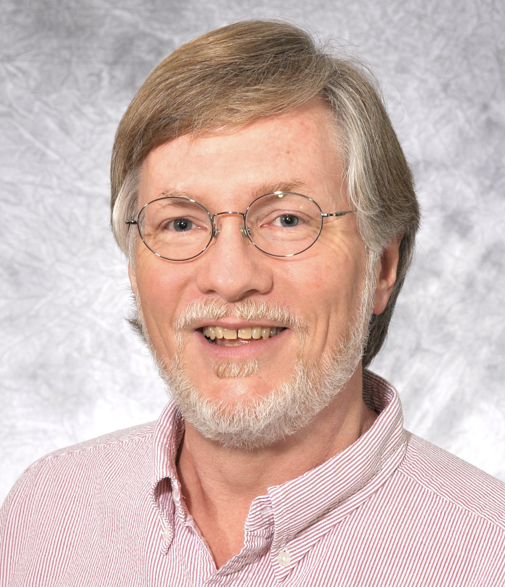
Charles Rhoads
Charles Rhoads is a senior staff editor at MedEdPORTAL. He received his undergraduate degree in English from Yale University and has master’s degrees in library science from Columbia University and in English from Northwestern University, as well as a JD from the Georgetown University Law Center. He has been editing professionally since 1992, for a variety of financial, legal, and scientific publishers both for- and nonprofit. In 2015, he was hired by the AAMC and joined the MedEdPORTAL editorial team. He has never moderated a panel discussion before, but he will try his best and begs your indulgence.
-
Contains 2 Component(s) Recorded On: 06/30/2023
This interactive session will include an overview of what editors look for during the peer-review process as well as common reasons for rejection.
This interactive session will include an overview of what editors look for during the peer-review process as well as common reasons for rejection. The speakers will discuss strategies for writing effective titles and abstracts for all types of scholarly publications (journal articles, conference submissions, reports, etc.) and share published examples from Academic Medicine to illustrate these strategies. Participants will engage in a writing exercise to apply what they have learned to their own scholarship.
After participating in this session, attendees should be able to:
- Describe the peer-review process and common reasons for rejection
- Articulate the importance of a strong title and abstract for all types of scholarly publications
- Craft a strong title and abstract that accurately represent their work
Please use Google Chrome, Firefox, Edge or Safari on this site.
Toni Gallo, MA
Manager, Medical Education Home, AAMCToni Gallo leads the newly developed Medical Education Home at the AAMC, which aims to improve how those across medical education engage with resources, scholarship, learning opportunities, and each other to advance the field. As a staff editor at Academic Medicine, she has nearly 15 years of experience reviewing and editing scholarly and other writing and has led reviewing and writing workshops at medical schools and national and international meetings. Toni founded Academic Medicine’s blog AM Rounds and produces and hosts the Academic Medicine Podcast. She holds a master’s degree in communication from Johns Hopkins University.
Jennifer Campi
Managing Editor, Academic MedicineJennifer Campi has more than 25 years of experience in academic and scholarly publishing. Prior to joining Academic Medicine in 2009, she worked at CQ Press, St. Martin’s Press, and the Gerontological Society of America. She has presented workshops on writing and reviewing at national and international meetings.
-
Contains 2 Component(s) Recorded On: 05/19/2023
This session will highlight best practices for writing clearly and concisely to increase the chances that your education scholarship will be accepted for publication.
This session will highlight best practices for writing clearly and concisely to increase the chances that your education scholarship will be accepted for publication. The speaker will share strategies at the word, sentence, and paragraph levels to improve the quality of your writing. Examples of clear and unclear writing will be explored through a series of interactive exercises. This session will end with a discussion of approaches for editing your work and freely available writing resources.
After participating in this session, attendees should be able to:
- Implement strategies for writing clearly and concisely at the word, sentence, and paragraph levels
- Use presented approaches for editing their work
- Find key resources for advancing their scholarship
Please use Google Chrome, Firefox, Edge or Safari on this site.
Toni Gallo, MA
Manager, Medical Education Home, AAMCToni Gallo leads the newly developed Medical Education Home at the AAMC, which aims to improve how those across medical education engage with resources, scholarship, learning opportunities, and each other to advance the field. As a staff editor at Academic Medicine, she has nearly 15 years of experience reviewing and editing scholarly and other writing and has led reviewing and writing workshops at medical schools and national and international meetings. Toni founded Academic Medicine’s blog AM Rounds and produces and hosts the Academic Medicine Podcast. She holds a master’s degree in communication from Johns Hopkins University.
